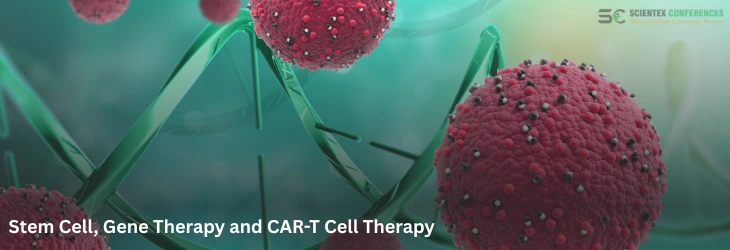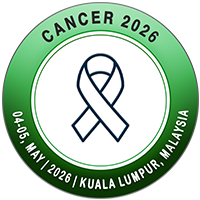Track: Stem Cell, Gene Therapy and CAR-T Cell Therapy

The "Stem Cell, Gene Therapy and CAR-T Cell Therapy" session will delve into some of the most promising and rapidly evolving areas in cancer treatment. This session aims to bring together scientists, clinicians, and innovators to explore how these cutting-edge therapies are reshaping oncology, offering hope for more effective, personalized, and lasting cancer care.
CSC Role in Tumorigenesis segment will explore their biology and role in initiating and sustaining tumors, and how targeting Cancer Stem Cells(CSCs) could lead to more effective treatments and potentially prevent cancer recurrence.
Autologous and Allogeneic Transplants are vital components of modern cancer therapy and this part of the session will discuss the differences between these two types of transplants, their applications, and the challenges associated with each to provide the latest advancements in transplant techniques that improve patient outcomes.
Stem Cell Treatment and Types discussion will also highlight the ethical considerations and regulatory challenges in stem cell research and treatment and will cover the different types of stem cells used in cancer therapy.
Personalized Gene Therapy segment will explore how to learn about the challenges of delivering gene therapy effectively, the progress in clinical trials, and the potential of this approach to provide long-term, personalized cancer care.
Chimeric Antigen Receptor T-cell (CAR-T) therapy has transformed the landscape of immunotherapy, especially for leukemia, lymphoma, and multiple myeloma. By engineering patients’ own T cells to target cancer-specific antigens, CAR-T has shown impressive remission rates in difficult-to-treat cancers. This segment will discuss the design, development, and future evolution of CAR-T therapies, as well as challenges like cytokine release syndrome (CRS) and resistance mechanisms.
Chimeric Antigen Receptor T-cell (CAR-T) therapy has transformed the landscape of immunotherapy, especially for leukemia, lymphoma, and multiple myeloma. By engineering patients’ own T cells to target cancer-specific antigens, CAR-T has shown impressive remission rates in difficult-to-treat cancers. This segment will discuss the design, development, and future evolution of CAR-T therapies, as well as challenges like cytokine release syndrome (CRS) and resistance mechanisms.
The discussion will include the use of Regenerative Medicine for Gene Transfer, as well as the potential of combining gene therapy with stem cell therapy to improve outcomes for cancer patients.
Oncolytic Virotherapy is an innovative approach and this portion will also explore insights into the prospects of oncolytic virotherapy as a component of multi-modal cancer treatment strategies.
Scientific Highlights
- Cancer Research Therapy and Autoimmune Diseases
- Cancer Biology and Biomarkers
- Types and Causes of Cancer
- Hematology in Cancer
- Organ Specific Cancer
- Cancer: Awareness, Lifestyle and Nutrition
- Oncology Subspecialties
- Advancements in Cancer Imaging Technologies
- Cancer Genomics and Epidemiology
- Cancer and Immunology
- Tumor Pathology and Cancer Cytopathology
- Cancer Pathophysiology
- Neuro and Radiation Oncology
- Stem Cell, Gene Therapy and CAR-T Cell Therapy
- Prevention and Palliative Care in Cancer
- Rehabilitation of Cancer Survivors
- Cancer Screening and Diagnosis
- Clinical Trials of Cancer
- Cancer Treatment and Traditional Therapies
- Complementary and Alternative Cancer therapy
- Artificial Intelligence in Cancer Research
- Future Technology in Oncology
- COVID-19 and Its Impact on Cancer


